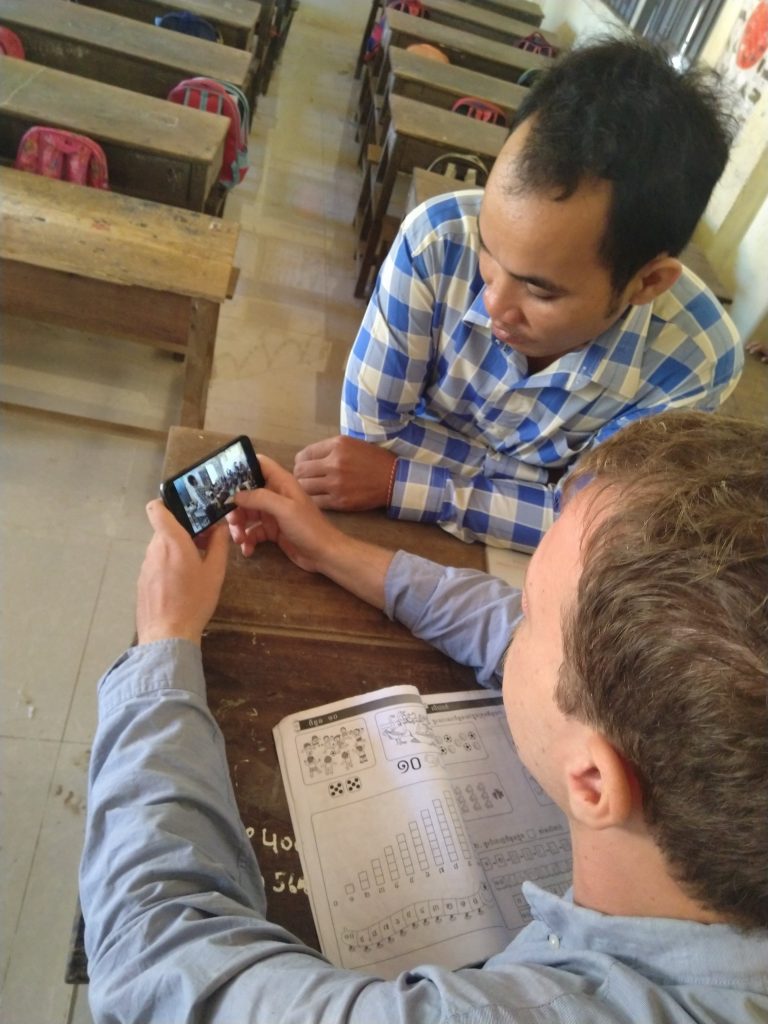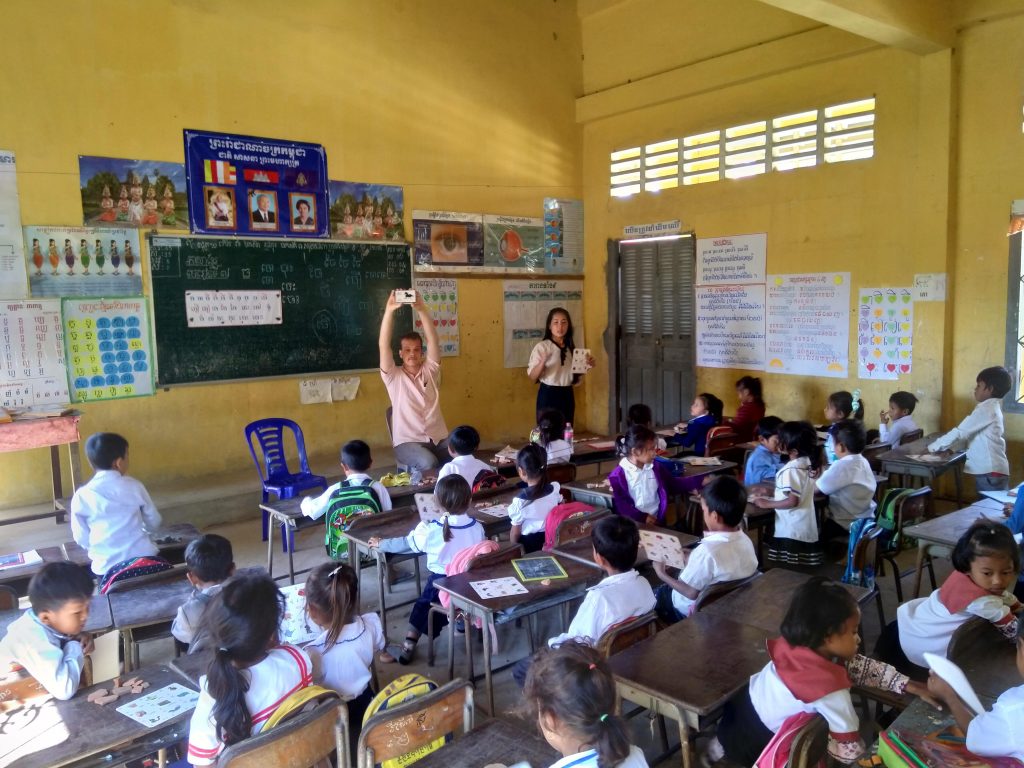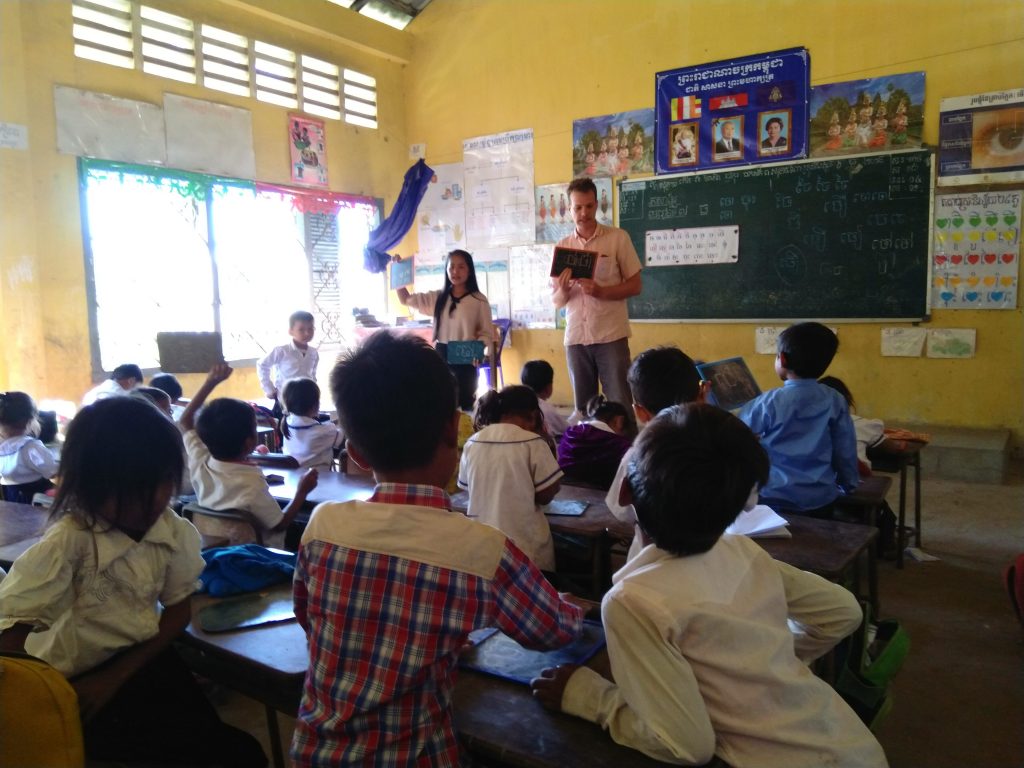Early in December we went on field visits to three schools in rural Prey Veng province. I shared a bit about the breakfast program, now let’s get into teacher coaching.
It is difficult to be a teacher in the countryside. The pay is low, supports are few, and absenteeism is common. Some teachers routinely skip school themselves to conduct other business (such as rice farming or private tutoring) to increase their income. Some teachers strike or yell at students. Other teachers try hard but don’t know how to be effective – especially as some rural schools have no curriculum, just vague guidelines. The best teachers may start by working in their local community but the majority of them soon move to the city (or to a private school) where they have better pay and more resources.
At one school we visited 40% of the teachers were absent for various reasons. This didn’t just mean that their students went without class, it also meant that their students were running around and disrupting the other classes. At another school one of the teachers is rumored to be possessed (I think untreated mental illness is more likely) so many of her students routinely skip her class. They either end up sitting in on other classes (not participating, just messing with their siblings who are in class) or playing disruptively just outside the classroom.

There was another kid flicking rubber bands but I couldn’t get a photo of him.
There’s a strong emphasis on rote memorization in the Cambodian education system. Unfortunately, this is often accompanied by teachers being either disengaged or strict (or sometimes both). It’s sadly common for teachers to ignore a struggling student and/or to punish them for an incorrect repetition.
MCC is working to improve the quality of rural education in a variety of ways. Introducing new learning tools like TRAC kits and tablets, organizing the community to increase local support, forming teacher cohort groups and facilitating learning visits to high capacity schools, and providing teacher coaching.

MCC Cambodia’s Education Coordinator is named Martin. I know he looks young but he is an experienced teacher with a Masters of Education.
Coaching Areas
- Attention Signals: Getting the students to use their bodies to help focus their minds. Lots of activities like “clap twice”, “look at the teacher, look at me”, “hands up, hands down”, “stand up, sit down”, “put your table on your head when you have the right answer “, and so on. It may sound silly but it’s amazingly effective.
- Peer Learning: Using student examples of correct answers, group work, and peer grading. This kind of reinforcement is new to the Cambodian education system.


- Presence: This is more individualized but Martin helps teachers develop their presence in the classroom. Teachers don’t want to come across as nervous, stressed, or angry…but calm, assertive, and in control.
- Teaching Methodology: Martin helps the teachers develop activities and techniques around each school’s curriculum. This can be challenging for schools that don’t have a curriculum – just vague guidelines like learn to write ធ today.
- Teaching: Martin also teaches classes and runs classes together with teachers, to get a feel for the individual challenges of their classroom and help them develop strategies in real time.

I love how softly he speaks.

Wow! What a challenge!
Makes me feel grateful for my educational experiences.
Such important work! Working in the educational system in America for the last 25 years, I can relate to only a very small percent of these behaviors…and then to imagine the challenges teachers face like insufficient pay and resources in Cambodia…makes their job of teaching seem almost untenable. I’m impressed by Martin and his drive to make education better for both students and teachers.